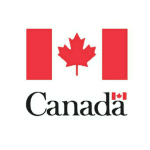Are you looking for unskilled jobs for immigrants in Canada, this post will teach you how to get started.
What are unskilled jobs?
Unskilled visa sponsorship jobs in Canada are typically entry-level positions that do not require a college degree. These jobs might include positions in manufacturing, service industry, and agricultural fields. Many of these positions also offer opportunities for overtime and evening hours.
How can I find unskilled visa sponsorship jobs in Canada?
There are many ways to find unskilled visa sponsorship jobs in Canada. You can search online job boards or newspapers classifieds, or contact employers directly to inquire about their hiring needs.
You can also attend job fairs and meet with potential employers in person. If you are a foreign citizen, be sure to research the Canadian job market before applying for a position.
What are the benefits of working in an unskilled visa sponsorship job in Canada?
The benefits of working in an unskilled visa sponsorship job in Canada include growth opportunities, pay that is competitive, and flexible hours. Many positions also offer health insurance and other benefits such as vacation time. You should also keep in mind that unskilled visa sponsorship jobs in Canada are often entry-level positions, so you may need to train for some of the essential functions of the job.
How to apply for an unskilled visa sponsorship job in Canada?
To apply for an unskilled visa sponsorship job in Canada, you will first need to research the available positions and submit your resume online or through a paper application. You will then need to attend a screening interview to assess your qualifications and make sure you are a good fit for the job.
After you have been offered the position, you will need to complete a Canadian work permit application and provide documentation of your immigration status.
Unskilled Visa Sponsorship Jobs in Canada for Foreigners
1. Jobs in the Healthcare Industry: If you are interested in working in the healthcare industry, you may want to consider becoming a nurse or doctor. These positions often require good manual dexterity and the ability to work quickly and efficiently. You will also need good communication skills, as many of these jobs involve interacting with other people on a daily basis.
2. Jobs in the Hospitality Industry: If you are looking for a job in the hospitality industry, you may want to consider working as a waiter or waitress. These jobs are often available and can be very rewarding. You will need good customer service skills and the ability to work quickly and efficiently. You may also be interested in working as a bartender, host/hostess, or kitchen staff member. These positions generally require less training than waitressing jobs, but they do require good interpersonal skills and the ability to handle difficult situations.
3. Jobs in the Agriculture Industry: If you are interested in working in the agriculture industry, you may want to consider becoming a farmhand or agricultural worker. These positions are often available and can be very rewarding. You will need good physical strength and stamina, as well as a good work ethic. You will also need to have strong communication skills, as many of these jobs involve working with other people on the farm.
4. Jobs in the Construction Industry: If you are looking for a job in the construction industry, you may want to consider becoming a carpenter, electrician, or plumber. These positions are often available and can be very rewarding. You will need good manual dexterity and the ability to work quickly and efficiently. You will also need strong communication skills, as many of these jobs involve working with other people in a team environment.
5. Jobs in the Transportation Industry: If you are interested in working in the transportation industry, you may want to consider becoming a truck driver, bus driver, taxi driver, or train conductor. Truck drivers, bus drivers, taxi drivers, and train conductors typically require good manual dexterity and the ability to work quickly and efficiently. These jobs often offer good pay and benefits.
6. Jobs in the Caregiving Industry: This is another great industry that attracts lots of sponsors in Canada, especially from the Canadian government. Jobs in the Caregiving industry include home health aides, personal care attendants, and nursing assistants. Many of these jobs require good manual dexterity and the ability to work quickly and efficiently.
Would You Like To Apply For This Jobs/Sponsorship?
Enter Your Email Address HERE & You Will Receive a Notification About Your Application. If it shows "Subscribed" CLICK HERE to follow on Telegram for updates7. Jobs in the Retail Industry: If you are interested in working in the retail industry, you may want to consider becoming a salesperson. These positions often require good communication skills and the ability to work quickly and efficiently. You will also need to have good customer service skills, as many of these jobs involve interacting with customers on a daily basis.
8. Jobs in the Food Industry: If you are interested in working in the food industry, you may want to consider becoming a cook or chef. These positions often require good manual dexterity and the ability to work quickly and efficiently. You will also need strong communication skills, as many of these jobs involve working with other people in a team environment.
9. Jobs in the Technology Industry: If you are interested in working in the technology industry, you may want to consider becoming a computer technician. These positions often require good manual dexterity and the ability to work quickly and efficiently. You will also need strong communication skills, as many of these jobs involve working with other people on a daily basis.
10. Maintenance Jobs: These include Janitor, Caretakers, Building Superintendents, light duty cleaners, and so on. Many of the jobs under this category require good manual dexterity and the ability to work quickly and efficiently.
11. Jobs in the Education Industry: If you are interested in working in the education industry, you may want to consider becoming a teacher, school administrator, or guidance counselor. Teachers, school administrators, and guidance counselors typically require good communication skills and the ability to work quickly and efficiently. These jobs often offer good pay and benefits.
12. Jobs in the Business Administration Industry: If you are interested in working in the business administration industry, you may want to consider becoming a finance manager, accounting specialist, or marketing manager. Finance managers, accounting specialists, and marketing managers typically require good communication skills and the ability to work quickly and efficiently. These jobs often offer good pay and benefits.
Tips for finding an unskilled visa sponsorship job in Canada?
Some tips for finding an unskilled visa sponsorship job in Canada include researching available positions, applying online or through a paper application, and attending a screening interview. You should also keep in mind that unskilled visa sponsorship jobs in Canada are often entry-level positions, so you may need to train for some of the essential functions of the job.
Finally, be sure to research Canadian work permit requirements before applying. If you are interested in finding an unskilled visa sponsorship job in Canada, contact a staffing agency specializing in immigration and labor market placement. They will be able to help you find the best position and get started on your Canadian work permit application process.
How Do You Qualify as an Unskilled Worker?
To qualify as an unskilled worker in Canada, having a college degree or equivalent experience in a skilled occupation may not be necessary as what is really required is your skill. You may also be able to qualify if you have work experience that is equivalent to a college degree in a skilled occupation. For example, if you have five years of experience as a carpenter, you may be able to qualify as an unskilled worker.
If you have a college degree or equivalent experience in a skilled occupation, you may still be able to qualify as an unskilled worker if you have experience working in a physically demanding job. For example, if you have worked as a construction worker for six months, you may be able to qualify as an unskilled worker.
- Popular immigration programs for foreign workers: Working Holiday Visa, Canadian Experience Class, and Skilled Employment Program. The Working Holiday Visa is a popular program that allows foreigners to work in Canada for up to one year without having to have a job offer from a Canadian employer.
- The Canadian Experience Class is another popular immigration program that allows foreign workers who have completed at least two years of college or university studies in Canada to stay in the country and work.
- The Skilled Employment Program is a government-run program that allows skilled immigrants to work in Canada for a period of up to four years.
The requirements for each of these programs vary, but all of them require that you have a valid visa and be in good health. You may also be able to qualify if you have work experience that is equivalent to a college degree in a skilled occupation.
For example, if you have five years of experience as a carpenter, you may be able to qualify as a skilled worker under the Skilled Employment Program. The process to apply for the Temporary Foreign Worker Program:
To apply for the Temporary Foreign Worker Program, you will need to gather the following information:
- Your resume
- A letter of application (you can use our online application form)
- An official transcript from all colleges or universities you have attended (if applicable)
- Two pieces of professional documentation that prove your skills and experience (for example, a certification from your occupation or a diploma from an accredited program)
- A passport-sized photograph. Once you have gathered all of the required documents, you can submit your application to the Employment and Social Development Canada (ESDC) office nearest you.
Processing time for applications varies depending on the office, but typically it takes around six weeks to receive a response. If you are successful in being approved for the Temporary Foreign Worker Program, you will be issued a labor market impact assessment (LMIA) that will outline the conditions under which you can come to Canada.
After you have been issued the LMIA, you will need to apply for a work permit from the Canadian Embassy or Consulate in your home country. The application process can take up to several months, and it is important to keep track of the progress of your application as it can be delayed if you do not meet all of the requirements.
How Does Your Employer Qualify to Sponsor you in Canada?
If your employer is an organization that has been designated as a qualified employer under the Labour Market Impact Assessment (LMIA) program, they will be responsible for applying on your behalf and sponsoring you to come to Canada. Employers who are not designated as qualified employers must contact ESDC for information on how to sponsor an employee.
There are a few important things to keep in mind when it comes to applying through your employer:
- Your employer must meet all of the requirements set out in the LMIA, including having a valid business license and enough employees to cover your position.
- Your employer must also be able to provide you with a work permit once you are in Canada.
- If your employment ends before your work permit has expired, your employer will need to take steps to ensure that you are able to return to Canada as soon as possible. This can include finding another position for you or providing proof that you have been offered re-employment elsewhere.
- Your employer must also ensure that you are continuing to meet the requirements of your work permit. If you are not meeting the conditions of your permit, they will need to take appropriate action.
If you are applying on your own behalf, there are a few things to keep in mind:
-You will need to fill out an application for permanent residence (form PR). Your application must be submitted with supporting documents, including proof that you have been offered a job with your new employer.
-Your employer must provide you with a letter of confirmation that you have been hired. This letter should include the start date of your employment and the pay rate.
-You will need to provide your new employer with a copy of your work permit and proof that you are meeting the conditions of your permit.
-If you leave your job without notice, or if your employment is terminated for any reason other than cause, you may be subject to immigration penalties, including deportation.
If you are applying on behalf of your spouse or common-law partner, they will need to follow the same steps as outlined above. However, your spouse/common-law partner will also need to provide their new employer with a copy of their work permit and proof that they are meeting the conditions of their permit.
If your spouse/common-law partner leaves their job without notice, or if their employment is terminated for any reason other than cause, they may be subject to immigration penalties, including deportation.
-If you are applying as a family member of a Canadian citizen or permanent resident, you will not need to provide your new employer with any documents. However, if you are applying as a family member of a foreign national who is not a Canadian citizen or permanent resident, you will need to provide your new employer with documentation that proves that you have the right to live in Canada. This documentation may include your passport, immigration card, or residency certificate.
-You may be subject to immigration penalties if you do not follow the instructions of your permit. For example, you must keep your permit in a safe place, and you must not leave Canada without permission from Immigration, Refugees, and Citizenship Canada (IRCC). If you are found to have violated the conditions of your permit, IRCC may impose fines or even send you back to your home country.
-If you are convicted of a criminal offense while in Canada, including a crime that is related to your work permit, your permit may be canceled and you may be subject to immigration penalties.
-If you do not comply with the conditions of your work permit, or if IRCC believes that you are not complying with the terms of your permit, it may revoke or suspend your permit. If this happens, you will need to apply for a new work permit from IRCC.
-If you leave Canada without permission from IRCC, or if it is believed that you have committed a criminal offense while in Canada, they may take action to deport you.
-If you are subject to immigration penalties or if your work permit is canceled, you may be unable to work in Canada or access government services. You should contact IRCC for more information.
-Your employer must also comply with the requirements of the Employment Insurance Act and the Income Tax Act when employing foreign workers. For example, your employer must withhold tax from your salary and provide you with appropriate documentation (such as a T4 slip) to support your claim for Employment Insurance.
-If you are convicted of a criminal offense while in Canada, your employer may also decide to terminate your employment. You should contact them immediately if this happens.
-If you have questions about any of the above, please contact IRCC at 1-800-959-8281 or visit their website at: www.ircc.gc.ca
Please note that if you are found guilty of an immigration offense, it may affect your ability to stay in Canada and may lead to deportation. If you are concerned about your immigration status or suspect that you have been the victim of an immigration offense, please contact IRCC immediately.
Labor Market Impact Assessment Requirement for Candidates:
If you are a candidate for a position in Canada, your employer must first complete a Labour Market Impact Assessment (LMIA) before they can hire you. Your employer must also provide you with the LMIA document once it has been completed.
- If your employment is terminated within six months of starting work, your employer may have to re-hire you and pay you the salary that would have been earned during the six-month period following the termination of your employment. This rule does not apply if your termination is due to a layoff that was approved by IRCC.
- If you have questions about the LMIA process, please contact IRCC at 1-800-959-8281 or visit their website at: www.ircc.gc.ca.
- If you are an employee who has been terminated from your job, you may be able to collect unemployment insurance benefits in Canada. To find out more information, please contact the Department of Employment and Social Development at 1-800-206-7218.
- If you are a worker who has been terminated from your job and you believe that your termination was not in accordance with Canadian law, you may want to consider filing a human rights complaint with the Canadian Human Rights Commission. You can find more information about filing a complaint on their website at: www.chrc-ccdp.gc.ca.
If your work permit is canceled, you will not be able to work in Canada until you receive a new work permit from IRCC. You should contact IRCC for more information.


![[WE ARE HIRING🇨🇦] Unskilled Jobs In Canada With Visa Sponsorship Available - APPLY NOW! Unskilled Jobs in Canada With Visa Sponsorship](https://hotcampusnews.com/wp-content/uploads/2023/11/Unskilled-Jobs-in-Canada-With-Visa-Sponsorship-150x150.jpg)


![[NOW HIRING🇺🇸] Unskilled Jobs In USA With Visa Sponsorship | No Experience or Education Required - Apply Unskilled Jobs with Visa Sponsorship in USA for Foreigners](https://hotcampusnews.com/wp-content/uploads/2023/06/Unskilled-Jobs-with-Visa-Sponsorship-in-USA-for-Foreigners-150x150.webp)

Interested
And how can I get started
I’m interested for this jobs.